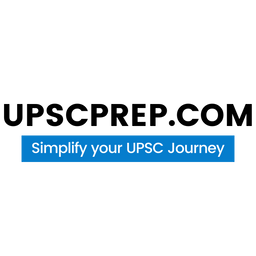Questions
- The issue of objectivity is a major concern in sociology as in search of true knowledge one’s values should not contaminate the research.” In the light of the above statement, critically examine value free sociology. 20
- Discuss Questionnaire as a technique of data collection. What are the characteristics of a good questionnaire? 20
1. The issue of objectivity is a major concern in sociology as in search of true knowledge one’s values should not contaminate the research.” In the light of the above statement, critically examine value free sociology. 20
Model Structure
Introduction
- Objectivity and value- define OR Define ‘Value free Sociology’
- Value Freedom in Social Research refers to the ability of the researcher to keep his or her own values (personal, political and religious) from interfering with the research process.
Main Body
- Value Freedom in Social Research refers to the ability of the researcher to keep his or her own values (personal, political and religious) from interfering with the research process.
- Objectivity -
- Essence in Positivistic Approach
- Durkhiem's method to identify Social facts
- Total discard of values and personal biases
- How values are problematic in Scientific research -
- Criticism of Marxism - Functionalism (Their Lacunas)
- Examples
- Value-free sociology NOT possible as-
- Choice of topic influenced by personal preferences
- Ideological biases of researcher
- Hypothesis formation requires assumption making→ can’t be done without the influence of values
- Interpretation of facts- value biased
- Value-free sociology can be achieved-
- Using scientific methods like "Double Blind" in research
- Using Verstehen (Weber),
- Train the researcher to adopt value-free approach
- Enlarge the samples
- Expand the research in temporal & spatial dimensions for wider acceptability
Conclusion
- Weber - one may not eliminate values creeping into sociology but should strive for that. (He suggested objectivity in methodology. Values can influence the choice of topic→ it can be tolerated)
- Phenomenology, reflexive sociology and anti-methodology proponents argue no objectivity and value neutrality is not sociological necessity
2. Discuss Questionnaire as a technique of data collection. What are the characteristics of a good questionnaire? 20
Model Framework
Introduction
- Define Questionnaire: Questionnaire is a set of printed or written questions with a choice of answers, devised for the purposes of a survey or statistical study. It is used primarily as a quantitative data collection tool.
Main Body
- Characteristics of a good questionnaire:
- Unambiguous
- It should not have doubtful questions
- It should be appealing to the target audience
- It should be brief
- Aesthetically appealing
- Mode of administration conducive to the target audience (soft/hard copy)
- Coherent placement of questions
- It should be intriguing
- There shouldn’t be repetition
- Use of questionnaire in sociological research- explain with examples
- Goldthorpe and Lockwood affluent worker study
- Advantages
- Cheapest, fastest and relatively easiest method of quantitative data collection
- High validity and reliability in close ended questionnaire
- Flexibility in data collection
- Highly objective
- Limited need of experts
- Scope for generalisation of data.
- Limitations of using questionnaire for data collection
- Leading questions can influence the response of participant
- Social desirability bias
- Non-response bias
- Poor return of postal questionnaire
- Researchers bias → sequence and questions are decided by him/her based on own values
Note: Advantages and Limitations can be eliminated or explained briefly in 10 marker question, but they must be explained in 20 marker question.
Conclusion
- Hybrid of quantitative methods like questionnaire and quantitative method must be used for sociological research.
- Triangulation Method given by Norman K Denizen
- Socio logic by Micheal Mann
Integrated Prelims + Mains Test Series
For UPSC Prelims and Mains 2023

